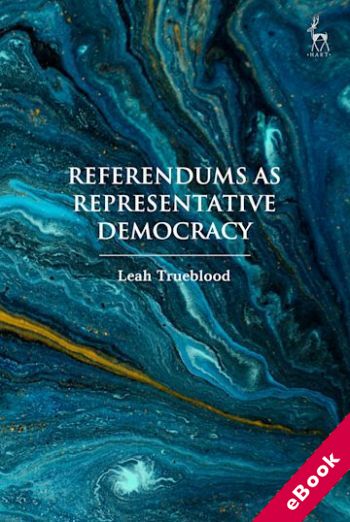
The device(s) you use to access the eBook content must be authorized with an Adobe ID before you download the product otherwise it will fail to register correctly.
For further information see https://www.wildy.com/ebook-formats
Once the order is confirmed an automated e-mail will be sent to you to allow you to download the eBook.
All eBooks are supplied firm sale and cannot be returned. If you believe there is a fault with your eBook then contact us on ebooks@wildy.com and we will help in resolving the issue. This does not affect your statutory rights.
In referendums on fundamental constitutional issues, do the people come together to make decisions instead of representatives? This book argues no. It offers an alternative theory of referendums whereby they are one of many ordinary ways that voters give direction to their representatives. In this way, the book argues that referendums are better understood as exercises in representative democracy.
The book challenges the current treatment of referendums in processes of constitutional change both in the United Kingdom and around the world. It argues that referendums have been increasingly used under the banner of popular sovereignty, in a way that undermines representative institutions. This book makes the case for the use of referendums stronger by showing how they can support, rather than undermine, institutions of representative democracy.
The author argues that democratic constitutions are not contracts, and that the use of referendums on fundamental constitutional questions may be justified for a wide range of reasons. Rather than see the power to constitute constitutions as something that happens occasionally in constitutional moments through referendums, this book argues instead that voters constantly have the power to constitute and reconstitute their constitutions.